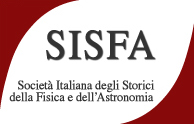Speaker
Description
Around 1518, the Ferrara humanist Celio Calcagnini (1479-1541) wrote an original defense of Earth's motion, Quod caelum stet, terra moveatur vel de perenni motu terrae (The Heavens Stand, the Earth Moves, or the Perennial Motion of the Earth). It was a short but complex philosophical treatise, written in a sophisticated style, on a topic of undoubted interest to the history of cosmology. It is one of the earliest documents attesting to the Renaissance circulation of geokinetic conceptions, in the very years when the revolutionary ideas of Copernicus started to circulate and the De revolutionibus orbium coelestium was taking shape. Yet, Calcagnini's text has not received adequate consideration in the history of science, apart from a few exceptions. This communication is devoted to this lesser known intellectual figure. It stems from a collaboration with Alberto Bardi aimed to offer the first modern translation of Quod caelum stet. I will discuss the cultural context from which Calcagnini’s defense of terrestrial motion emerged. It especially relied on natural and epistemological considerations within the framework of an eclectic humanistic philosophy, influenced by skepticism and Platonism. Calcagnini discussed at length the limits of our cognitive faculties and argued for the need that reason moves beyond immediate sensible appearance. He then argued for the plausibility of the Earth's motion against common sense, on the basis of a series of natural arguments.

